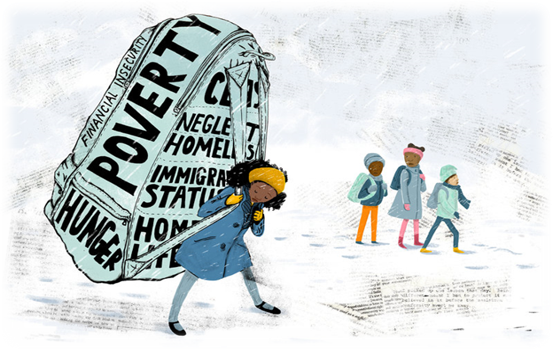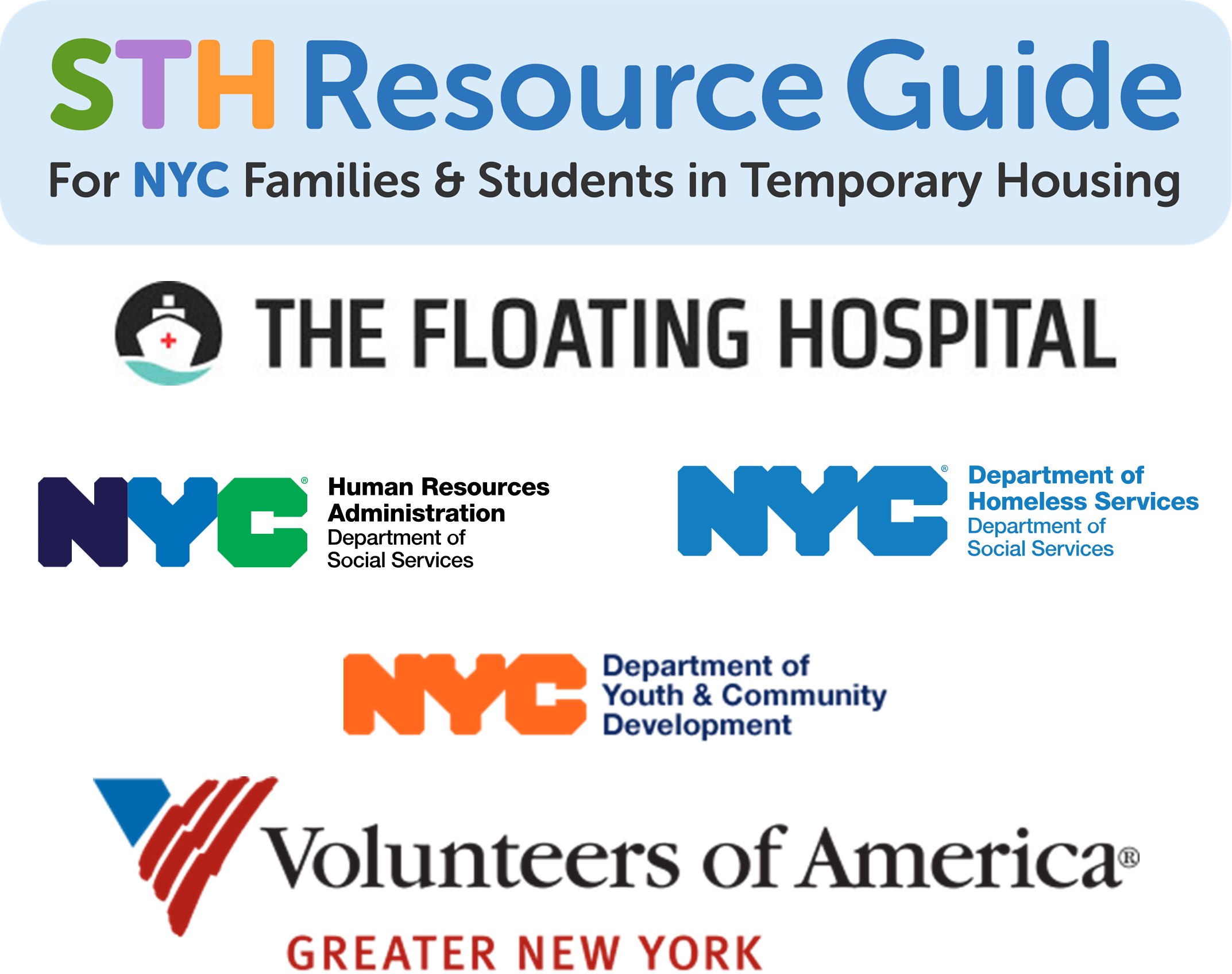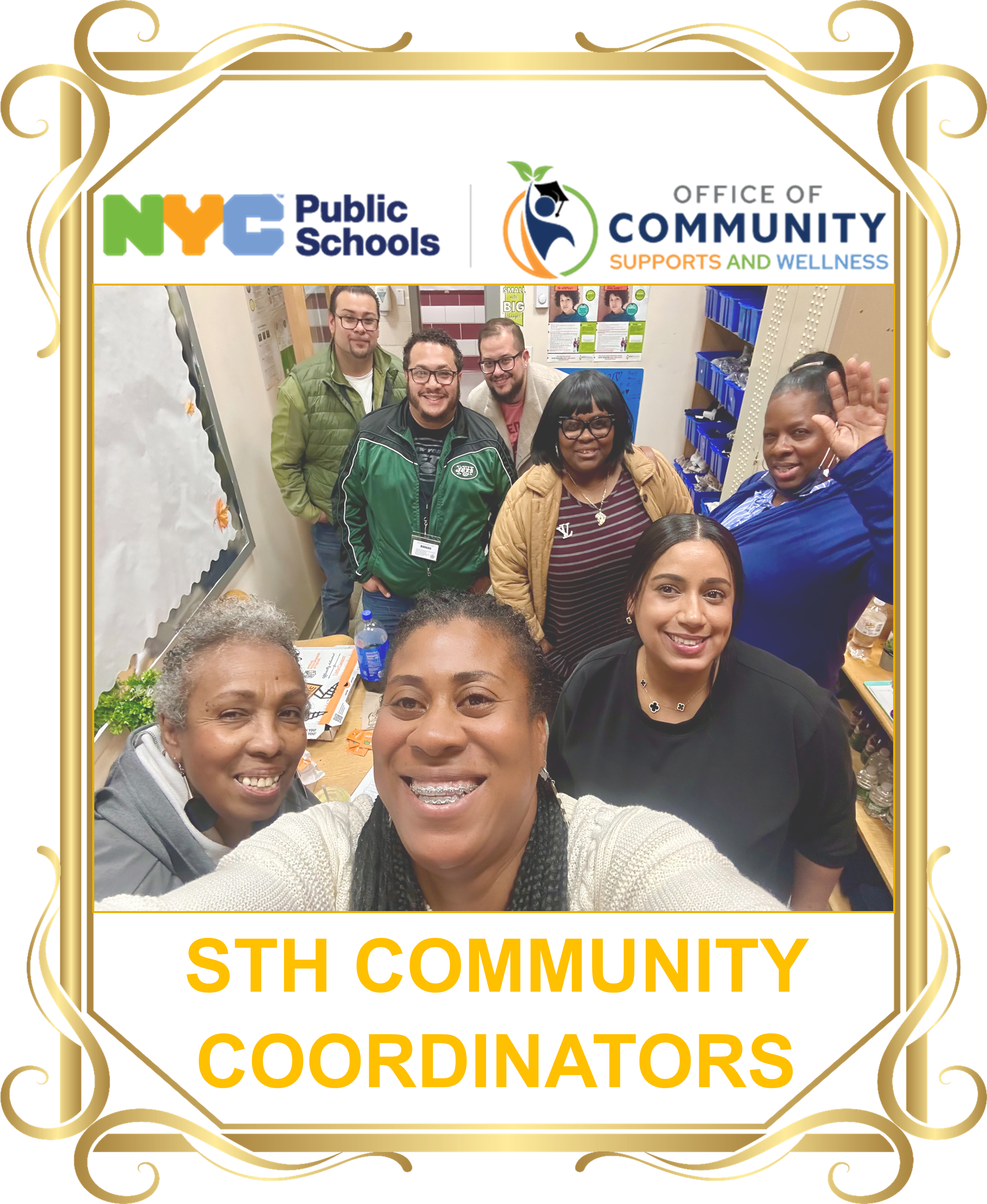Welcome! to our Students in Temporary Housing Community Coordinators District 10 Website

Our role as community coordinators is to bridge the gap between our public schools and our city shelters. We base ourselves in shelter facilities in order to collaborate with school-based personnel so we can provide accurate daily attendance. We are advocates to our shelter families by reassuring them that they are getting the proper assistance from our public schools. We will go out to our STH students' schools and provide workshops for our school-based staff with introductions to what our STH students are encountering within the shelter system. This will give a better outlook and understanding of what type of environment and lifestyle our STH students are living, especially if it may be affecting their attendance and or their grades.
Connecting Students and Families to Supports and Services

STH Community Coordinators collaborate with the Department of Homeless Services, Department of Youth and Community Development, Department of Health and Mental Hygiene, Human Resource Administration and other city agencies for priority enrollments, special programs, and targeted services. We partner with nonprofits like The Floating Hospital, Single Stop and Healthy and Ready to Learn to deliver special services. Also, we partner with private sectors to deliver special supports like backpacks, coats, toys, etc.
- NYC Agency Resources
- Health and Welness Resources
- Resouces for Donations from Private Organizations
Agency Resources
Community Coordinators work together with DHS shelter staff in order to provide the best assistance outcome that can benefit our STH families. Other department agencies can assist with government food supplements, cash assistance (welfare), youth programs for afterschool.
- Electronic Documents Submission
- Many of our government resources such as HRA and ACS Child Care vouchers may require to upload documents to their website, we can provide assistance to the families who are not savvy with computer technology.
Family Health Clinics and Referrals
We will assist our families in researching nearby adult and pediatric clinics. Especially when our public schools require that all students are up to date with their vaccines. We can create and generate referrals and assist with making appointments for our STH families.
- Mental Health Awareness
- Having to transition to a shelter can become very overwhelming, especially when it involves children. Although the parents may already be receiving professional counseling, we may invite them to events where they can participate in activities with their children, this may help to alleviate some of the stress they are encountering.
Private Organizations
We try to reach outside organizations so they can volunteer by providing donations to our families and their children who are in need.
- Donations for Our STH Families
- Many private organizations have participated with donating back packs and school supplies, coat drives, sports and Broadway show tickets, and thanksgiving food drives, Christmas toys and many more.
Increase Attendance for Students in Shelters

STH Community Coordinators monitor the attendance for the students in temporary housing by removing barriers to attendance. We ensure continuous improvement of attendance by using data driven tools. Also, we provide guidance and encouragement by establishing successful mentorships.
- School Attendance Meetings
- Data Driven Tools (ATS, Student Profile, Portal by New Visions, etc.)
- 100% School Attendance Certificates and Celebration, School Trips, and Workshops
Attendance Meetings
As STH Community Coordinators, we attend bi-weekly attendance meetings with the schools our shelter students attend. We also attend monthly meetings with the shelter facility staff, so we can collaborate to provide necessary services to the families whose children have reached chronic absenteeism.
- Possible Causes to Chronic Absenteeism
- There can be numerous possibilities that lead to children not able to attend school. The transitioning into a city shelter from one borough to another, perhaps the child does not have clothes or clean clothes, the parent/guardian may be going through a mental health crisis, the child is feeling sick due to the high-rate of poor health, hygiene and living conditions which are usually affected in our city shelters.
Attendance Data Tools
We are provided with data tools where we monitor students’ daily attendance. Students are considered chronic absenteeism if they have been absent 3 days within the month. We can view their demographics, and if they have a school bus route.
- Concerns When Students Have Reached Chronic Absenteeism
- The Portal by New Visions is a tool we use the most because it provides us with the student’s attendance percentage. Once a student has reached below eighty percent, we would meet with the parent to discuss the concerns, then provide the proper assistance.
Rewards for 100% Attendance
We will reward students with a ceremony where we will provide them with a pizza party, a gift, and a 100% attendance certificate. This can encourage them to continue having a perfect attendance. The students with 90% and above are also rewarded so they can set a resolution to also achieve a 100% attendance.
- Resources and Solutions for Improving Attendance
- We will provide workshops for the parents to help them understand the purpose to having their child attend school every day. Mentorships for the students are also provided to help them assist with having their parents take them to school every day.
If you know of a family who is going through hardship and are trying to cope with their situation you can provide them with the above mentioned resources as follows:
- Temporary Assistance and Supplemental Nutrition Assistance Program: NYC Human Resources Administration
- Mental Health and Health Awareness: NYC Department of Health and Mental Hygiene
- Unrestricted Healthcare: The Floating Hospital
- Homelessness: NYC Department of Homeless Services
- Food Pantries, Clothing Assistance and Other Services: helpnyc.info Resource Navigator
